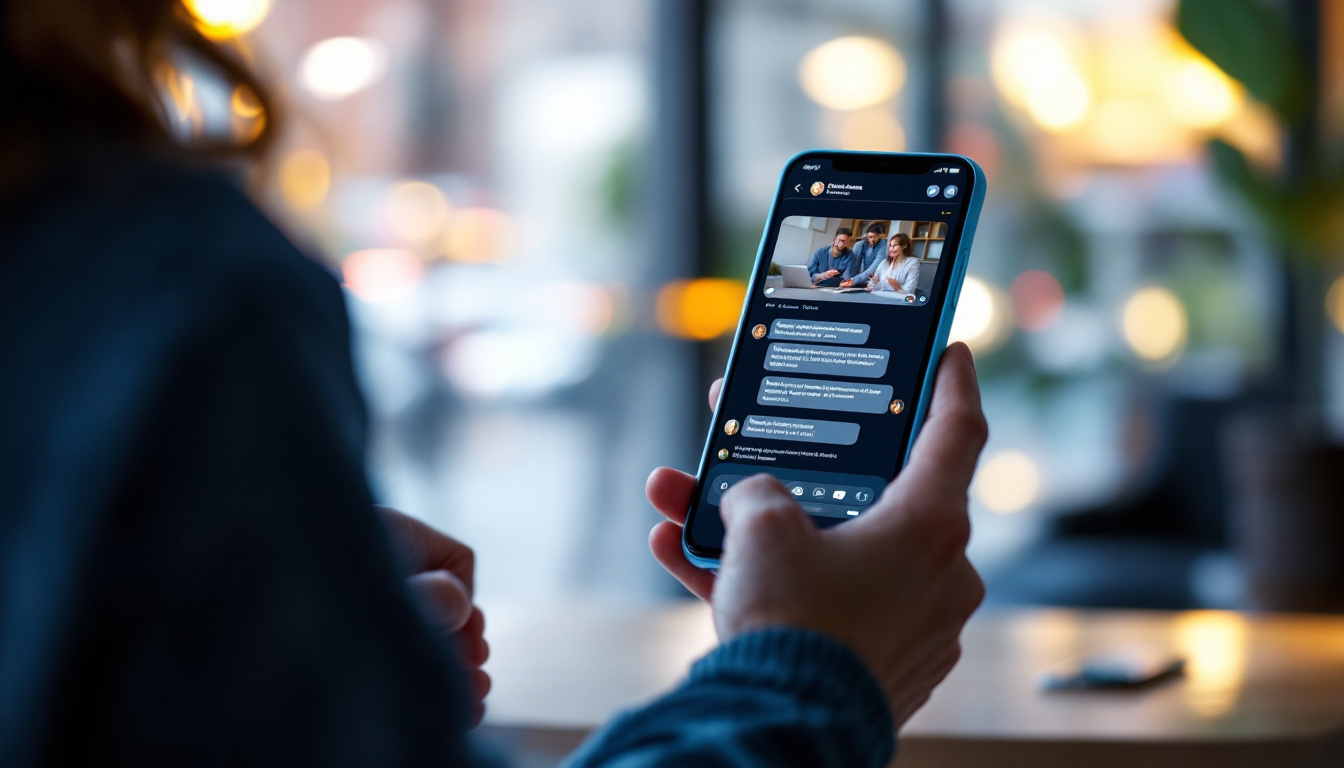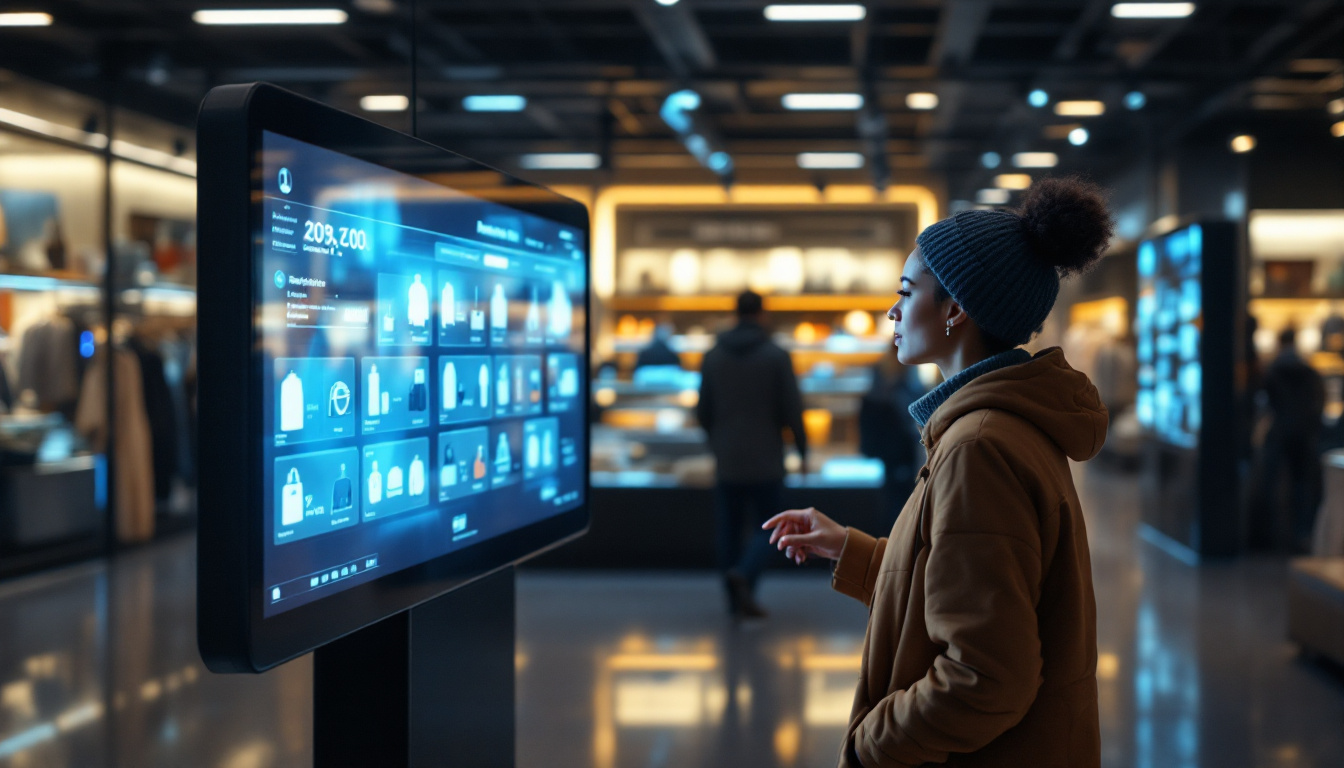In the dynamic landscape of retail and e-commerce, businesses are continuously seeking innovative ways to enhance customer interactions and streamline their marketing strategies. One such innovative technology is RCS Business Messaging, which stands to revolutionize the way brands communicate with their customers. This article explores RCS Business Messaging, its impact on product recommendations and promotions, and its future potential in retail and e-commerce.
Understanding RCS Business Messaging
RCS, or Rich Communication Services, is a protocol that enhances traditional SMS messaging with richer features, such as images, videos, carousels, and interactive buttons. It transforms the static, text-based experience of SMS into a dynamic and engaging platform that can deliver a wealth of information effectively.
The Basics of RCS Business Messaging
RCS Business Messaging allows brands to communicate with their customers directly through their messaging apps. Unlike SMS, which is limited in terms of content and engagement, RCS enables businesses to create rich and interactive messaging experiences. This includes the ability to send branded content, conduct surveys, and provide personalized recommendations—all in real-time.
Moreover, RCS offers improved analytics and tracking capabilities. Businesses can monitor delivery rates, read receipts, and customer engagement levels, allowing for more informed decision-making and customization of messaging strategies.
The Role of RCS in Retail and E-Commerce
In the context of retail and e-commerce, RCS presents a unique opportunity for brands to foster stronger connections with customers. With RCS, retailers can send personalized messages that cater to individual preferences and shopping behaviors. This not only elevates the customer experience but also enhances brand loyalty.
Furthermore, RCS allows for seamless integration into existing CRM systems, making it easier for businesses to manage customer relationships effectively. The interactivity of RCS can help in driving traffic to e-commerce websites, showcasing promotions, and guiding customers through their purchasing journey.
One of the standout features of RCS is its ability to facilitate two-way communication, enabling customers to respond directly to messages. This interactivity opens up avenues for customer feedback and inquiries, allowing businesses to address concerns promptly and create a more personalized shopping experience. For instance, a customer could receive a message about a new product launch and respond with questions about availability or pricing, leading to a more engaged and satisfied customer base.
Additionally, RCS can enhance marketing campaigns by allowing brands to incorporate rich media elements, such as videos and images, directly into their messages. This capability not only captures attention but also encourages customers to interact with the content, whether it’s clicking on a promotional offer or viewing a product demonstration. As a result, businesses can create immersive experiences that not only inform but also inspire action, ultimately driving conversions and sales in a competitive marketplace.
The Impact of RCS on Product Recommendations
Product recommendations are a critical component of effective marketing strategy in retail and e-commerce. RCS can dramatically enhance how these recommendations are delivered and perceived by customers.
How RCS Enhances Product Recommendations
With RCS, businesses can create visually appealing product recommendation messages that include images, descriptions, and pricing options. Instead of simply sending text-based links, retailers can offer a rich visual experience that draws potential buyers in. This can help customers quickly grasp the value of the recommended products.
Additionally, RCS allows for personalization based on past purchase behavior, browsing history, and user preferences. By utilizing customer data effectively, businesses can tailor recommendations uniquely suited to each individual, increasing the likelihood of conversion significantly.
The Benefits of RCS for Product Recommendations
Some benefits of using RCS for product recommendations include:
- Enhanced Engagement: Interactive elements like buttons can prompt customers to view products, add items to their cart, or share recommendations with friends.
- Improved Conversion Rates: Personalized, visually appealing messages can lead to higher click-through rates and ultimately, increased sales.
- Real-time Feedback: Businesses can easily gauge customer reactions through metrics, allowing further refinement of future recommendations.
Moreover, RCS can facilitate a more dynamic interaction between consumers and brands. For instance, businesses can send follow-up messages that encourage customers to provide feedback on their purchases or ask if they need assistance with their selections. This two-way communication fosters a sense of community and loyalty, as customers feel valued and heard. Furthermore, by integrating RCS with loyalty programs, retailers can send tailored offers or rewards based on a customer’s shopping habits, further enhancing the shopping experience and encouraging repeat business.
In addition to these advantages, RCS can also support multimedia content, such as videos or GIFs, which can showcase products in action. This capability allows retailers to highlight features and benefits in a more engaging manner than static images alone. For example, a clothing retailer could send a video demonstrating how a jacket looks when worn, providing customers with a better understanding of fit and style. Such immersive content not only captures attention but also helps customers make informed decisions, ultimately leading to a more satisfying shopping experience.
RCS and Promotions: A Powerful Combination
Promotions are vital in capturing customer attention and driving sales. Leveraging RCS can elevate promotional strategies, making them more effective and engaging.
The Influence of RCS on Promotions
RCS not only allows businesses to inform customers about promotions but does so in a manner that is engaging and interactive. Through RCS, brands can transmit promotional messages that include rich media, such as videos or GIFs, showcasing deals in an enticing way.
Interactive features, such as countdown timers for limited-time offers and quick response buttons to redeem discounts, further increase customer engagement and urgency. Customers are more likely to act when they feel an emotional connection to a visually attractive promotion. This emotional engagement can be amplified through personalized content that resonates with the individual, making them feel valued and understood. By tailoring promotions based on past purchases or browsing behavior, brands can create a more compelling narrative that encourages customers to take immediate action.
Advantages of Using RCS for Promotions
Leveraging RCS for promotional activities brings forth various advantages:
- Higher Visibility: RCS messages can stand out in a crowded inbox due to their rich multimedia capabilities and branding elements.
- Direct Customer Interaction: Shoppers can engage with promotions directly through the messaging interface—no need to navigate away from their messaging app.
- Enhanced Tracking: Brands can track customer interactions accurately, allowing them to refine future promotional strategies based on data.
Moreover, the ability to integrate customer feedback directly into the RCS messaging platform can foster a two-way communication channel that enhances customer loyalty. For instance, after a promotional campaign, brands can solicit feedback through quick surveys embedded in the RCS messages, allowing them to gauge customer satisfaction and preferences. This not only improves the overall customer experience but also provides invaluable insights that can shape future promotional efforts. Additionally, the use of RCS can lead to increased conversion rates, as customers are more likely to follow through with purchases when they can easily access information and take action without the friction of switching apps or platforms.
The Future of RCS in Retail and E-Commerce
As technology continues to advance, the potential of RCS in retail and e-commerce looks bright. The shift towards conversational commerce indicates that customers increasingly prefer interactive and engaging communication with brands.
Predicted Trends for RCS Business Messaging
Several trends are emerging that will likely shape the future of RCS in retail and e-commerce:
- Increased Personalization: As AI and machine learning technologies evolve, RCS will enable even more precise targeting and personalized messaging.
- Omni-channel Integration: We can expect more seamless integration between RCS, social media, and other digital platforms, creating a unified customer experience.
- Sustainability Efforts: Brands may leverage RCS to promote eco-friendly practices and products, tapping into the growing customer demand for sustainability.
Preparing for the Future of RCS in Retail and E-Commerce
For businesses aiming to harness the potential of RCS, preparation is key. This involves investing in technology that supports RCS, training marketing teams on best practices, and focusing on customer data. Understanding customer needs and trends will be pivotal in crafting compelling RCS messages.
Moreover, businesses must remain agile and ready to adapt their strategies as customer preferences and technologies evolve. Staying ahead of the curve will ensure retailers can leverage RCS to its maximum potential, enhancing customer experience and driving sales in the long run.
As RCS technology matures, we can also anticipate the introduction of richer media formats within messages, such as videos and interactive carousels, which can significantly enhance the shopping experience. These features will allow brands to showcase their products in a more dynamic way, capturing the attention of consumers who are increasingly drawn to visually engaging content. Additionally, the ability to incorporate payment options directly within RCS messages may streamline the purchasing process, making it more convenient for customers to complete transactions without leaving the conversation.
Furthermore, the rise of chatbots and virtual assistants integrated with RCS could revolutionize customer service in retail and e-commerce. These AI-driven tools can provide instant responses to customer inquiries, assist with product recommendations, and even handle order tracking, all within the messaging platform. This not only improves efficiency but also enhances customer satisfaction by providing immediate support, which is crucial in today’s fast-paced digital environment. As these technologies continue to evolve, the potential for RCS to transform the retail landscape will only grow, offering brands innovative ways to connect with their audience.
Ready to Elevate Your Customer Messaging Experience?
Embrace the future of retail and e-commerce communication with nativeMsg, the RCS Business Messaging Creator. Our platform empowers your business to craft, send, and optimize interactive messaging experiences that captivate your audience. Say goodbye to plain text and hello to rich, engaging conversations with images, videos, carousels, and more. With nativeMsg, you’re not just sending messages; you’re creating connections. Don’t miss out on the opportunity to boost your engagement and conversion rates. Get Started today and transform your customer interactions into immersive experiences.
Free Trial
Get Started With RCS
Business Messaging!
Unlock the power of RCS and revolutionize your customer engagement.





